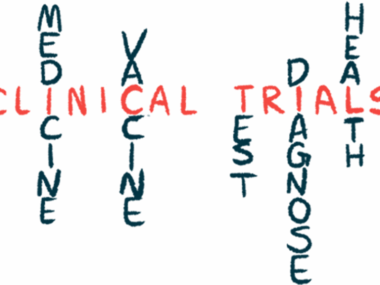Gene therapy BBM-H901 approved for hemophilia B in China
Ongoing Phase 3 trial shows BBM-H901 reduced bleeding rates after 1 year
Written by |

The gene therapy BBM-H901 (dalnacogene ponparvovec) has been approved in China for adults with moderate to severe hemophilia B, making it the first approved gene therapy for the disorder in the country.
BBM-H901 was developed and will be manufactured by Belief Biomed (BBM), but it will be commercialized in mainland China, Hong Kong, and Macau by Takeda China.
“As the first hemophilia B gene therapy drug independently developed in China, BBM-H901 will provide a new treatment option for hemophilia B patients, which is expected to provide patients with an innovative treatment solution and help them return to a normal life,” Xiao Xiao, co-founder, chairman, and chief science officer of BBM, said in a press release from the two companies. “BBM will work together with Takeda China to accelerate the rapid implementation of this innovative therapy.”
Hemophilia B is caused by mutations in the F9 gene, which provides instructions to make a clotting protein called factor IX (FIX). People with hemophilia B don’t have enough FIX activity so the blood cannot clot properly, leading to excessive and prolonged bleeding episodes. Standard treatment consists of replacement therapy, where a working version of FIX is routinely infused into the bloodstream to compensate for the missing protein and normalize blood clotting.
“The traditional treatment of hemophilia B requires frequent intravenous injections, and the factor level fluctuates … Some patients are also at risk of developing inhibitors [neutralizing antibodies against the administered clotting factor], leading to reduced treatment effectiveness,” said Zhang Lei, MD, a researcher at the Blood Disease Hospital of the Chinese Academy of Medical Sciences and lead investigator on a Phase 1 study of BBM-H901.
BBM-H901 designed to deliver healthy copy of F9 gene to liver cells
BBM-H901 is designed to deliver a healthy copy of the F9 gene to cells in the liver, where the FIX protein is made, allowing for the production of a functional version of the protein that can help normalize clotting activity. The gene therapy uses a modified harmless version of an adeno-associated virus to deliver the therapeutic gene.
“The approval of BBM-H901 will … help more patients to benefit from innovative treatments,” said Sean Shan, senior vice president of Takeda Pharmaceutical and president of Takeda China.
A Phase 1 clinical trial (NCT04135300) tested BBM-H901, given as a single into-the-vein infusion, in 10 men with moderate to severe hemophilia B, with results showing stable increases in FIX levels. Most patients were able to stop FIX replacement therapy while having no bleeds.
A Phase 3 clinical trial (NCT05203679) is assessing the safety and efficacy of a single dose of BBM-H901 in a larger group of men with moderate to severe hemophilia B. Data from a prespecified analysis conducted one year after dosing showed patients had a mean annualized bleeding rates of 0.6 bleeds per year, with 80.8% of the evaluated patients being free from bleeds after receiving BBM-H901. Increases in FIX levels and reductions in the use of FIX therapies were also seen after one year of follow-up.



